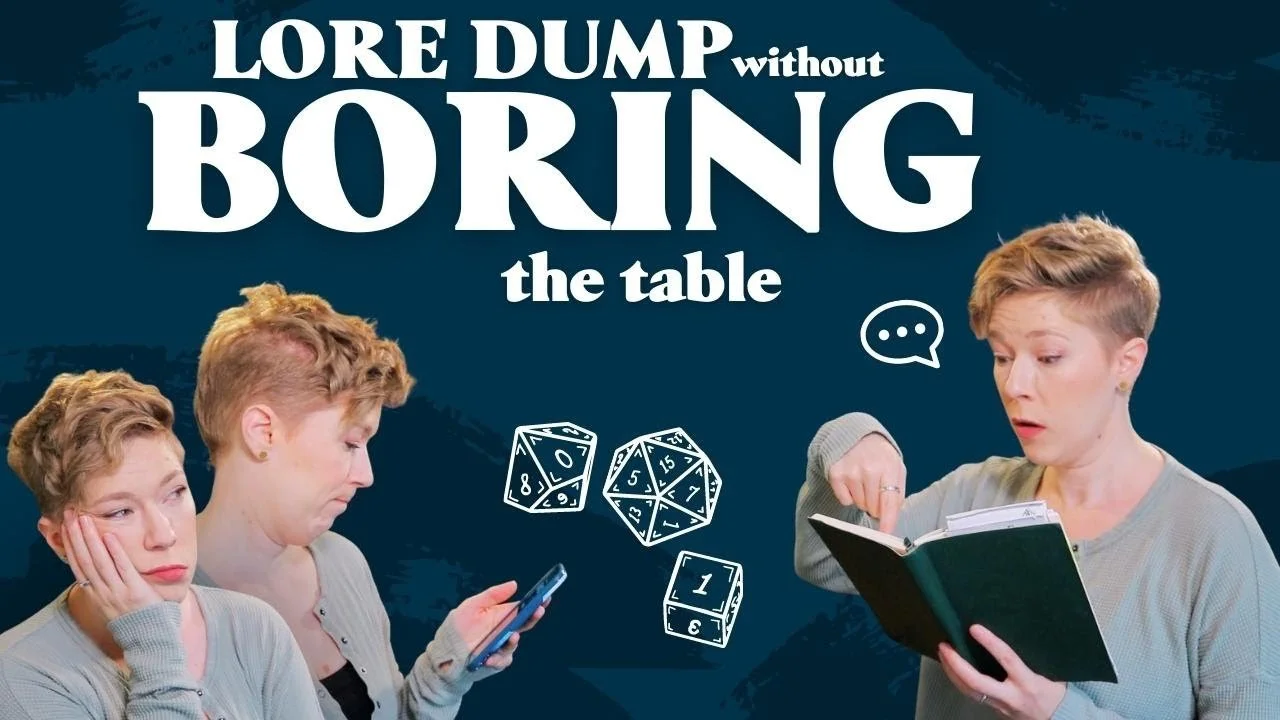How D&D Makes Me A Better Writer
2024 marks the fiftieth anniversary of a little game that took over the world.
Believe it or not, Dungeons and Dragons is now half a century old. Fittingly, the gift for a fiftieth anniversary is gold, the currency that fuels the D&D world. But I’ve found a value in the game that goes far beyond the treasure my party finds.
Dungeons and Dragons has not only given me countless hours of entertainment.
It’s makes me a better writer.
How?
Let me list some of the ways D&D helps me up my professional game…
· Embrace imperfection:
To create a character in D&D, you need to roll dice and assign scores to six major traits: Strength, Dexterity, Constitution, Intelligence, Wisdom, and Charisma. Beginning players are often frustrated when their characters don’t score high across the board. They want a character with high ability scores in all traits. But I’ve found that perfect tend to be boring. It’s the flaws that bring a character to life.
I’ll give you a personal example. I created a musician (a bard) who was strong on charisma and intelligence, but weak on wisdom. Strong charisma and intelligence made him a terrific performer, but when it came to evaluating risks, he fell flat. He tended to rush into situations without thinking things through. This fundamental flaw put the party in quite a few interesting situations. One of his mistakes even formed the basis of an entire campaign. If I had created a “perfect” bard, he (and his party) wouldn’t have developed in the ways that they did.
Now, whenever I consider new characters for my own work, I find myself seeking out their flaws. I ask myself: What are they weak at? What are their insecurities and how does it affect their lives? This opens whole new territories for me to explore.
· Info-dump in interesting ways:
You know when you get to a point in a book where authors “info-dumps” a whole bunch of facts on readers? When they provide you with so much background information your eyes glaze over and you’re tempted to abandon the book?
A writer can see the effects of “info dump” in real time with D&D.
As the dungeon master (DM) goes into endless details about the world he or she created, shoulders slouch, bodies fidget, cellphones are secretly checked under the game table. The best DM’s (and writers) combat this by doling out information in little tidbits, to tantalize the party just enough for them to keep engaged. This information can be presented in a variety of interesting ways: through an overheard conversation at a tavern, or a discussion with a dead soldier brought back to life, or even a chat with a dragon!
Whenever I think about presenting a lot of information to my readers, I try to come up with the most entertaining ways to convey it. My characters might have a breathless conversation while they’re playing pickleball or have a heated argument while arranging a funeral. Whatever setting you choose, presenting material in interesting and unexpected ways keeps your audience connected, even when you need to info dump.
· Don’t try to keep things “on the rails”:
Writers are world builders. They control the universe, dictating every move their characters make.
What makes them great authors can make them terrible DM’s.
Dungeons and Dragons is, first and foremost, a collaborative game. The dungeon master and the players both contribute to creating the world. But it’s ultimately the players who decide where they want to go next. Sometimes, this means ignoring all the material the DM has carefully prepared. A good DM will pivot and go along with the wishes of the group (hopefully incorporating some of their prepared material into a new scenario). A bad DM will refuse to compromise, insisting their players “stay on the rails” and follow the path they laid out. This can lead to discontent, if not outright rebellion. I have heard of games where players would rather kill off their characters than plod through the scenario the DM insists on running.
What’s a poor DM to do? The same thing a writer does. LISTEN. I’ve had situations in my stories where characters refuse to do something. What I want them to do is vital to the story, but they dig in their heels and refuse to cooperate. Whenever this happens (in both my writing and D&D), I frequently stop and ask myself why they’re resisting. The answer can as unexpected as it is enlightening.
An example of this from my game play. I have a character that went on a typical dungeon crawl, where the goal of the mission was kill monsters and collect treasure. He was mad the entire time the party was down there. Not just mad. Furious. I couldn’t figure out why. Then I remembered he had an encounter with an undead character who refused to rest until he got revenge on the friends that betrayed him. This revenant mirrored my character’s own mind set a little too closely. It forced him to evaluate his life choices and decide whether he wanted to continue down the same self-destructive path. If I refused to listen to my character and just forced him do what I wanted, I would have missed this valuable insight.
So the next time someone tells you Dungeons and Dragon is “just a game”, point them in my direction. We’ll start rolling the dice and exploring new worlds!
BELOW: Oh, if only life was like D&D! Gary Gygax, the creator of D&D, and Al Gore in Futurama.


